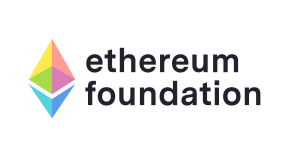Ethereum Transaction Fees
| Project | The Influence of Transaction Costs on Economic Activity on the Ethereum Network |
| Duration | Aug 2022 – Apr 2023 |
| Funding | Ethereum Foundation |
| Contact person | Lennart Ante |
Funded by

Project description:
The Ethereum blockchain network enables transaction processing and smart-contract execution through levies of transaction fees, commonly known as gas fees. This framework mediates economic participation via a market-based mechanism for gas fees, permitting users to offer higher gas fees to expedite processing. Historically, the ensuing gas fee volatility led to critical disequilibria between supply and demand for block space, presenting stakeholder challenges.
The research project examines the dynamic causal interplay between transaction fees and economic subsystems leveraging the network. By utilizing data related to unique active wallets and transaction volume of each subsystem and applying time-varying Granger causality analysis, we reveal temporal heterogeneity in causal relationships between economic activity and transaction fees across all subsystems. This includes: (a) a bidirectional causal feedback loop between cross-blockchain bridge user activity and transaction fees, which diminishes over time, potentially signaling user migration; (b) a bidirectional relationship between centralized cryptocurrency exchange deposit and withdrawal transaction volume and fees, indicative of increased competition for block space; (c) decentralized exchange volumes causally influence fees, while fees causally influence user activity, although this relationship is weakening, potentially due to the diminished significance of decentralized finance; (d) intermittent causal relationships with miner extractable value bots; (e) fees causally influence non-fungible token transaction volumes; and (f) a highly significant and growing causal influence of transaction fees on stablecoin activity and transaction volumes highlight its prominence.
These results inform strategic considerations for stakeholders to more effectively plan, utilize, and advocate for economic activities on Ethereum, enhancing the understanding and optimization of within the rapidly evolving economy.
Publications:
Journal of Risk and Financial Management
Time-Varying Bidirectional Causal Relationships between Transaction Fees and Economic Activity of Subsystems Utilizing the Ethereum Blockchain Network
BRL Working Paper No. 29
Time-Varying Bidirectional Causal Relationships between Transaction Fees and Economic Activity of Subsystems Utilizing the Ethereum Blockchain Network